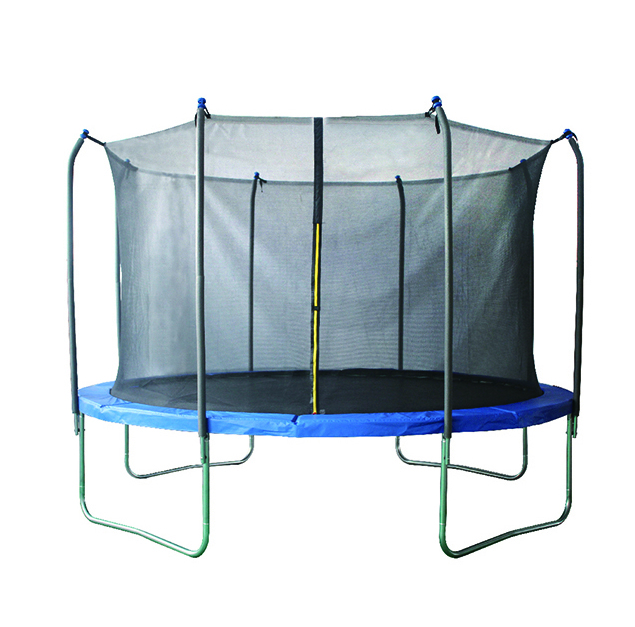Beijing - Should President Trump
Beijing - Should President Trump threaten to levy an additional $100 billion in tariffs on Chinese products, Chinese officials should have been stepped up for it, but at least for now, it has failed.
China’s initial reaction to the Trump statement on Thursday was firm but calm. It did not immediately propose new tariff proposals. It is not in a hurry to comment. When officials responded, they did not speak.
On Friday night in Beijing - during the long holidays - officials of the Ministry of Commerce reiterated that China will take "any measure" to counterattack, and formulate more "very detailed measures" when needed.
"We do not rule out any options," said Gao Feng, spokesman for the ministry, adding that Beijing is currently considering talks with the U.S. trade envoy.
"The way China does things is this: We don't challenge, but if someone fights, we will fight with determination," Mr. Gao told reporters. "The Chinese have been very serious in dealing with these issues. We mean what we say."
President Trump directed U.S. trade officials to consider a new round of 100 billion U.S. dollar tariffs on China. (Reuters)
In other words, Beijing's message is when and how it will respond, not what Trump is afraid of.
Trump surprised many people on Thursday night and he ordered his chief trade negotiator to consider imposing tariffs on another 100 billion U.S. dollars worth of Chinese products. This is obviously to provoke the challenge of Beijing.
In the next few hours, the Asia Pacific market, including Hong Kong, remained stable. The news media controlled by the Communist Party of China stated that small officials and senior officials in Beijing are mothers.
At noon in Asia, the Ministry of Commerce issued a brief statement.
"We have noticed the relevant statement of the United States," it read. "About the issue of Sino-US relations. S. trade, China's position has been very clear. We do not want to fight, but we are not afraid to fight a trade war."
[Trump seeks additional tariff of 100 billion U.S. dollars for Chinese goods in trade confrontation upgrade]
Since early March, China and the United States have exchanged escalating threats.
On March 1st, the United States announced that it will impose an annual tariff of about 3 billion U.S. dollars on steel and aluminum. China responded by adopting similar measures for US pork, fruit and other items worth US$3 billion.
On Tuesday, the White House continued to implement tariffs on manufacturing technology, believing that China's trade behavior was not conducive to US companies.
Not a day later, China counterattacked with its own US$50 billion tariff, including the levy of soybeans, some aircraft and the threat of cars, which triggered Trump’s next threat.
Lost in some reports, these are still very many threats, not behaviors. Both sides are brave enough, but they all know that they have failed a lot.
Although China may have more economic losses, it survived the trade war and may be in a better political position.
China’s reciprocal tariffs are annoying to Trump because they are targeting soybeans and cars – these are important for Red State voters. If China imposes a 25% tax on these products as planned, Trump may be hurt by public opinion polls.
Many U.S. industrial groups and even Republican lawmakers have called for the president to adopt a more cautious attitude, warning that a full-scale trade war may damage agriculture and industry.
Chinese President Xi Jinping does not need to worry about the forthcoming election. Since he controls the media to a large extent, he can decide when and how Chinese citizens influence trade - or not -. If he is necessary, he also has cash to subsidize Chinese companies.
In the short term, Trump’s latest success has made Beijing space a victim. This is a rational actor caught in the crosshairs of an unreasonable and impetuous American president.
[Trump's tariffs on China may increase the price of your next TV]
"Although the United States has a legitimate complaint about China's treatment of [intellectual property], it has allowed China to treat the United States as a trade aggressor by responding to trade sanctions," said Simmons, Asia's general manager and chief economist of the Economist Intelligence Unit. · Baptiste in the statement. "A better way is to take action through investment and patent rules."
In an editorial published on Friday, the "Global Times," controlled by the Chinese Party, known for its "nationalist colors," refuted Trump's statement issued late on Thursday as a grumpy president.
"This shows that he wants to make an explosive statement to vent the wind," the paper wrote. "As for whether these ideas can be put into practice and what are the consequences, these are his second concerns."
The editorial goes on to point out that China "will never indulge Washington's temper" but tries to "manage" it.12





